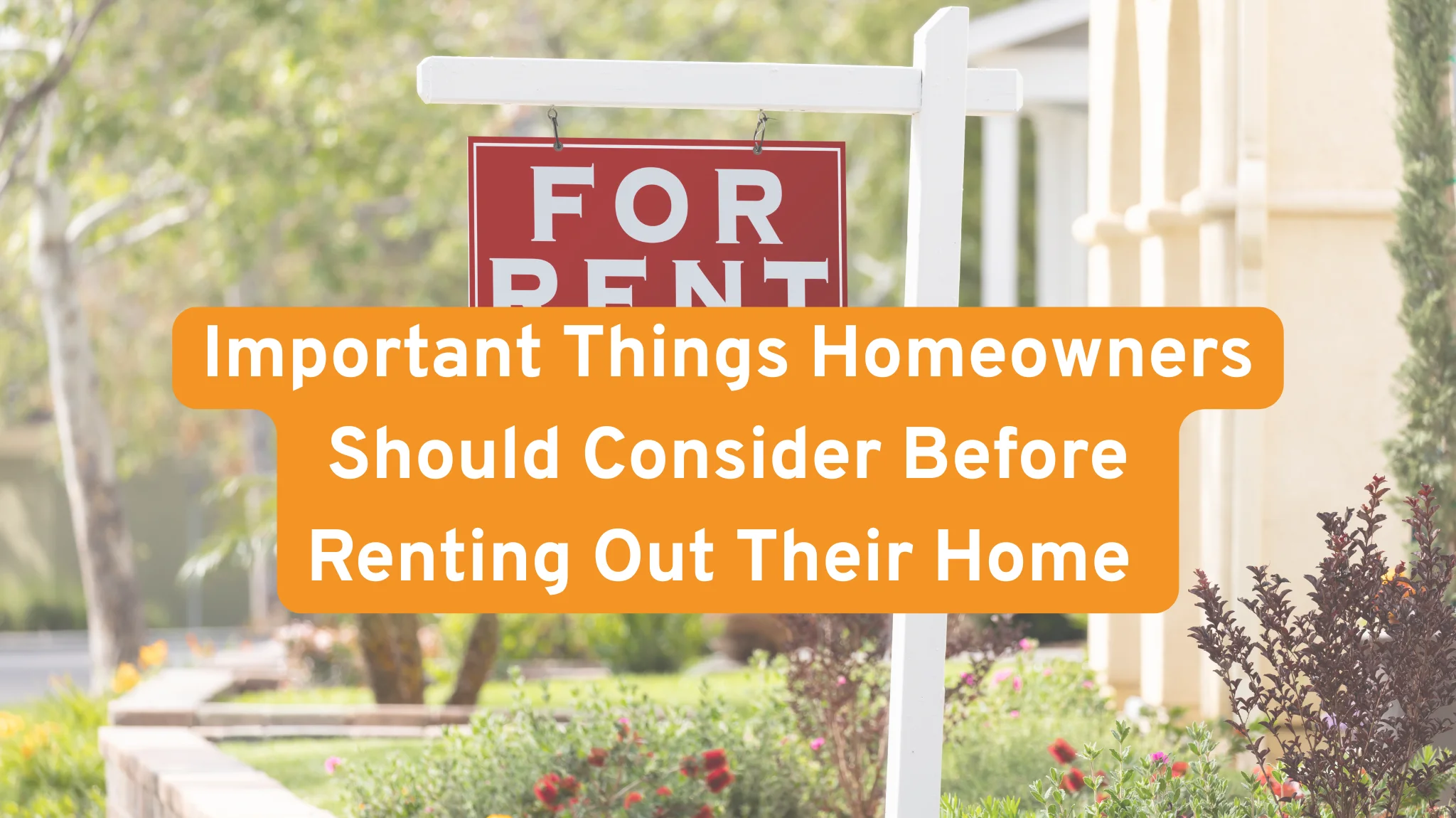Table of Contents
- Strong Rental Demand
- Positive Cash Flow
- Property Condition
- Tenant Screening
- Property Management
- Long-Term Goals
- Frequently Asked Questions
Things to Consider Before Renting Out Your Home
Investing in a rental property can be a smart way to build long-term wealth. If you own a home and are thinking about turning it into a rental, there are several factors to weigh before making the leap. Renting out your property can generate passive income, but it also comes with responsibilities and risks.

Here are some of the most important things to consider before renting out your home.
Strong Rental Demand
Before you advertise your home, research the local rental market. Look at:
- Vacancy rates in your neighborhood
- Average monthly rents for similar properties
- What types of rentals are most in demand (single-family, condos, apartments)
A strong rental market helps ensure your property stays occupied and generates steady income.
Positive Cash Flow
Cash flow is one of the biggest deciding factors. Your rental income should cover all expenses and still leave you with profit. Consider costs like:
- Mortgage payments
- Property taxes
- Insurance
- Maintenance and repairs
- HOA fees (if applicable)
Run the numbers to make sure the property won’t cost more than it earns.
Property Condition
A well-maintained property attracts better tenants and higher rent. Before listing your home, take care of:
- Repairs (plumbing, electrical, appliances)
- Cosmetic updates (fresh paint, flooring, landscaping)
- Safety upgrades (smoke detectors, locks, lighting)
A home in good condition can also reduce turnover and long-term maintenance headaches.
Tenant Screening
Finding the right tenants is crucial. Responsible renters protect your investment and pay on time. Screening should include:
- Credit checks
- Employment and income verification
- References from past landlords
Don’t skip this step—it can save you major headaches down the road.
Property Management
Managing a rental property is more work than many homeowners expect. You’ll need to handle:
- Marketing the property
- Showing the home to potential tenants
- Collecting rent
- Handling maintenance requests
- Enforcing lease agreements
If this feels overwhelming, consider hiring a professional property management company. They can handle day-to-day operations so you can focus on your long-term goals.
Long-Term Goals
Think about your reasons for renting out your home. Are you looking for:
- Passive income?
- Long-term equity growth?
- A future primary residence?
Your goals should align with the realities of being a landlord. If you’re committed to the process, renting can be a strong financial move.

Final Thoughts
Turning your home into a rental can create steady income and long-term wealth—but only if you prepare properly. From researching the market and running cash flow projections to screening tenants and managing daily operations, every step matters.
We know your long-term goals of owning rental property are important to you. But if the day-to-day responsibilities feel daunting, you deserve to put the process on autopilot. Our Rental Analysis Tool is a great place to start—it shows you the income potential of your home and helps you decide if renting is the right move.
Frequently Asked Questions
1. Is it a good idea to rent out my home?
It depends on your financial situation and long-term goals. Renting out your home can provide passive income and build equity, but you’ll need to consider cash flow, property management, and local rental demand before deciding.
2. How do I know if my home will rent quickly?
Check local vacancy rates, compare rental prices for similar properties, and see what types of homes are in demand in your area. A strong rental market usually means shorter vacancy periods.
3. What expenses should I expect as a landlord?
Common expenses include your mortgage, property taxes, insurance, HOA fees, maintenance, repairs, and property management costs if you hire a professional company.
4. Do I need to make repairs before renting out my house?
Yes. A well-maintained property attracts better tenants and higher rents. Fix safety issues, handle maintenance needs, and consider small upgrades like fresh paint or landscaping.
5. Should I hire a property manager?
If you don’t have the time or desire to handle tenant screening, rent collection, and maintenance requests, hiring a property management company can make the process easier and more efficient.
6. How do I screen tenants effectively?
Review credit scores, run background checks, verify employment and income, and request references from past landlords to help reduce the risk of late payments or property damage.


